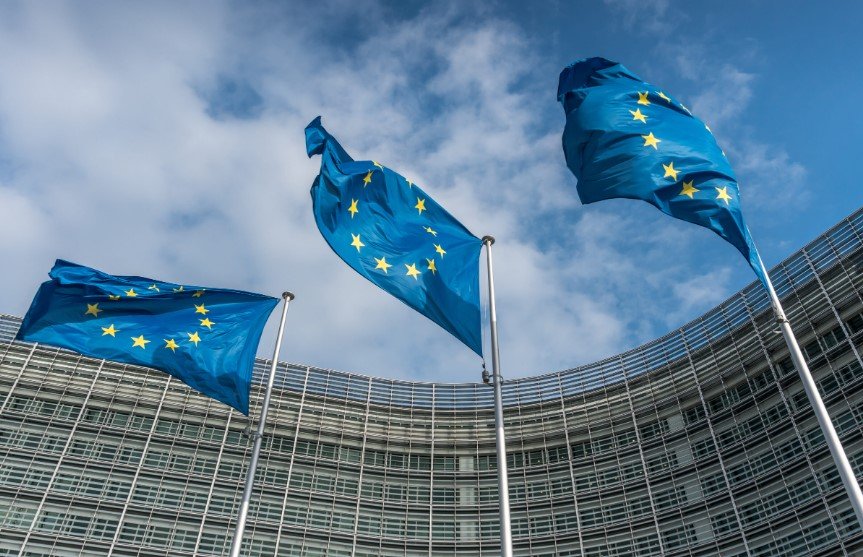The European Commission has proposed suspending key parts of its trade agreement with Israel due to the ongoing Gaza war, citing humanitarian concerns and human rights violations. This move, announced on September 17, 2025, also includes new sanctions on extremist Israeli ministers and violent settlers, but it still needs approval from EU member states amid deep divisions.
Details of the EU Proposal
The proposal targets the EU-Israel Association Agreement, which has been in place since 2000 and supports billions in annual trade. Officials say the suspension would remove preferential access for Israeli goods, leading to higher duties on exports worth about 5.8 billion euros.
This step comes after months of pressure from countries like Ireland and Spain, who have pushed for stronger action against Israel’s military operations in Gaza. The Commission reviewed the agreement’s human rights clause, pointing to blocked aid, expanded settlements in the West Bank, and intensified fighting as reasons for the change.
EU trade commissioner Maroš Šefčovič called the action proportionate and regretted the need for it. He stressed the goal is to push for better humanitarian access, a ceasefire, and hostage releases.
The plan also extends sanctions to Hamas, balancing the measures. If approved, it could reshape EU-Israel relations, which saw trade hit 42.6 billion euros in 2024.

Israel’s Strong Response
Israeli Foreign Minister Gideon Saar quickly condemned the proposal as morally and politically flawed. In a statement on social media, he warned that any EU action against Israel would hurt Europe’s own interests and promised a fitting response from Tel Aviv.
Israel views the EU as its top trading partner, accounting for 32 percent of its global goods trade. Officials argue the proposal ignores security threats from groups like Hamas and overlooks Israel’s right to defend itself.
This reaction echoes past tensions, such as when the UK paused trade talks with Israel earlier in 2025 over similar Gaza concerns. Israeli leaders have hinted at potential countermeasures, like limiting EU access to tech innovations or energy deals.
Public opinion in Israel remains divided, with some seeing the EU move as biased while others worry about economic fallout.
Analysts predict that if the suspension passes, Israeli exporters could face up to 227 million euros in extra duties, hitting sectors like agriculture and tech hard.
Broader Impact on Trade and Economy
The EU-Israel trade relationship spans goods, research, energy, and environmental projects, totaling around 68 billion euros yearly. Suspending parts of it could disrupt supply chains and raise costs for European consumers on items like fruits, chemicals, and medical devices from Israel.
Here is a breakdown of key trade figures between the EU and Israel based on recent data:
| Category | EU Exports to Israel (2024, in billions of euros) | Israel Exports to EU (2024, in billions of euros) |
|---|---|---|
| Machinery and Tech | 12.5 | 8.2 |
| Chemicals and Pharma | 9.1 | 7.4 |
| Agriculture and Food | 4.3 | 5.8 |
| Other Goods | 6.7 | 4.7 |
| Total | 32.6 | 26.1 |
This table shows the balanced but vital trade flow, with potential disruptions if tariffs return.
Economists warn of ripple effects, such as higher prices in Europe and job losses in Israel. The proposal ties into global trends, like recent UN reports on Gaza’s humanitarian crisis, where over 40,000 deaths have been reported since October 2023.
Divisions Among EU Member States
Not all EU countries support the proposal. Germany and Hungary have voiced opposition, favoring dialogue over sanctions. They argue that punishing Israel could weaken efforts to combat terrorism and harm regional stability.
In contrast, Ireland’s leader welcomed the move, calling it a strong signal against the Gaza crisis. Spain has also backed it, linking to their recognition of Palestine in 2024.
EU foreign policy chief Kaja Kallas noted shifting public opinion due to Gaza’s suffering, but political lines remain firm. Approval requires consensus or a qualified majority, which could take weeks or months.
Recent polls show 60 percent of Europeans favor more pressure on Israel for aid access, up from 45 percent a year ago.
This split reflects broader EU challenges in foreign policy, similar to debates over Ukraine aid.
Global Reactions and Next Steps
World leaders have mixed views. The US, a key Israeli ally, has not commented directly but continues to push for ceasefires. UN officials praised the EU for addressing human rights, urging swift implementation.
In Gaza, aid groups hope the pressure leads to more supplies entering the region, where famine risks loom.
Possible next steps include:
- EU Council debates starting next week.
- Potential revisions to balance sanctions on both sides.
- Diplomatic talks between Brussels and Tel Aviv to avoid escalation.
- Monitoring of trade flows if the suspension advances.
As this unfolds, it highlights the Gaza war’s far-reaching effects on international relations.
The situation remains fluid, with potential for more developments. Share your thoughts in the comments below and spread the word on social media to keep the conversation going.
